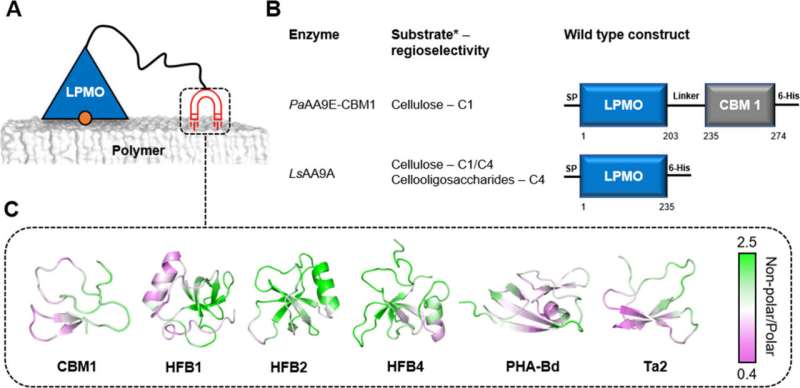Plastic pollution is a global concern, and scientists are exploring innovative solutions to address this challenge. This article explores how researchers are reprogramming wood-degrading mushroom enzymes to tackle the problem of plastic waste. By engineering these enzymes to recognize and break down different types of plastics, the researchers aim to develop a toolkit for the biorecycling of plastics. This technology could revolutionize the way we manage and recycle plastic waste. Plastic pollution is a complex issue that requires multifaceted solutions.

Harnessing Nature’s Power to Tackle Plastic Waste
Plastic pollution is ubiquitous in the environment, and finding effective ways to manage and recycle plastic waste is a global challenge. One promising solution is the development of biorecycling technology, which utilizes the natural capabilities of certain organisms to break down and process plastic materials.
In this study, researchers have focused on reprogramming the enzymes produced by wood-degrading mushrooms, known as lytic polysaccharide monooxygenases (LPMOs). These enzymes are naturally equipped to break down the tough, recalcitrant polymers found in wood cellulose, making them ideal candidates for engineering to target plastic polymers as well. By replacing the binding modules of these enzymes, the researchers have created ‘chimera LPMOs’ that can recognize and bind to different types of plastics, including the biosourced plastic polyhydroxyalkanoate (PHA).
Engineering Enzymes to Tackle Plastic Pollution
The key to the researchers’ approach is the modular structure of the LPMO enzymes. These enzymes typically consist of two modules: a binding module that helps the enzyme recognize and attach to its target polymer, and a catalytic module that breaks down the polymer’s surface. By replacing the binding module with alternative modules, the researchers were able to engineer the enzymes to recognize and bind to different types of plastics, rather than just cellulose.
This process of ‘modular engineering’ allowed the researchers to create a suite of chimera LPMOs that can target a variety of plastic materials. Some of these engineered enzymes were even able to create holes in the surface of PHA, a type of biosourced plastic. This is a promising first step towards developing an enzymatic toolkit for the biorecycling of plastics.
Towards a Sustainable Future: Enzymatic Plastic Biorecycling
The next step for the researchers is to further evaluate the effectiveness of these chimera LPMOs in breaking down different types of plastics. By identifying the most effective enzymes, they can then work on optimizing and combining them into ‘enzyme cocktails’ – a complementary set of enzymes that can work together to efficiently break down and recycle plastic waste.
This approach to enzymatic plastic biorecycling holds great promise for the future. By harnessing the natural capabilities of wood-degrading fungi, scientists are finding innovative ways to tackle the growing problem of plastic pollution. As this technology continues to develop, it could play a crucial role in creating a more sustainable and circular economy for plastic materials.
